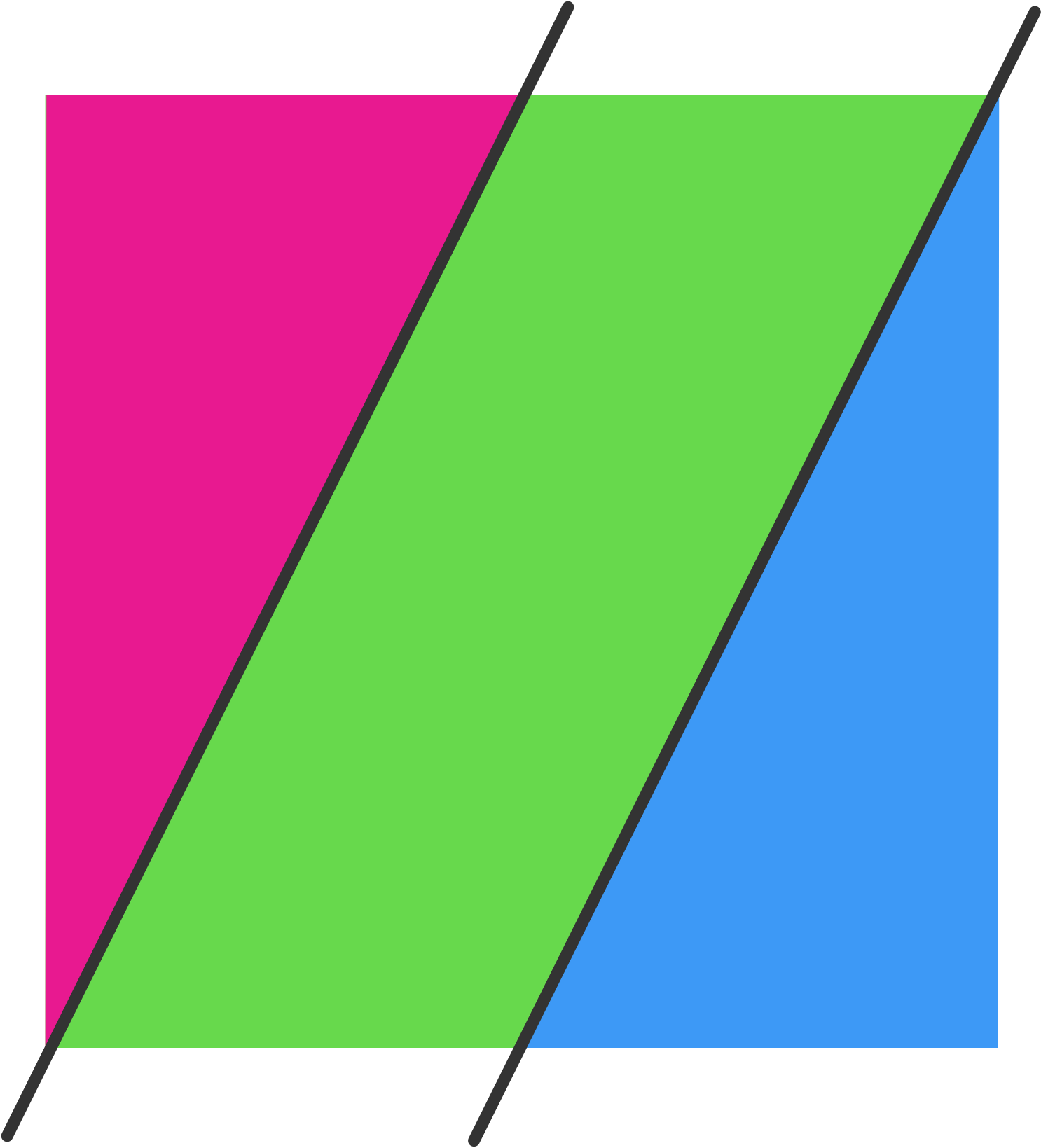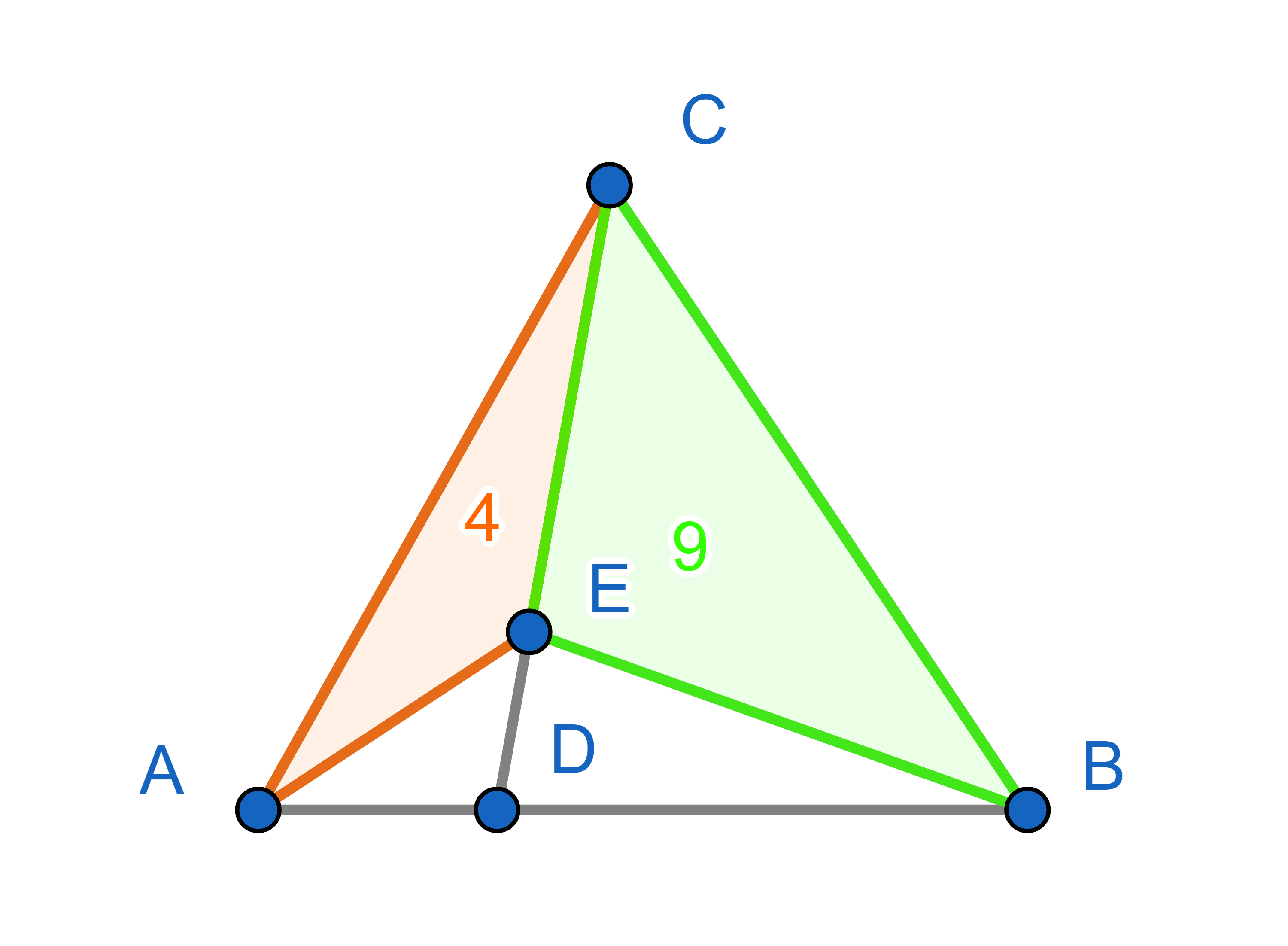Problems
Show how to divide any quadrilateral into \(5\) polygons of equal area.
Line \(AB\) is parallel to line \(CD\) and line \(AD\) is parallel to line \(BE\). Show that triangles \(ADE\) and \(ABC\) have equal areas.
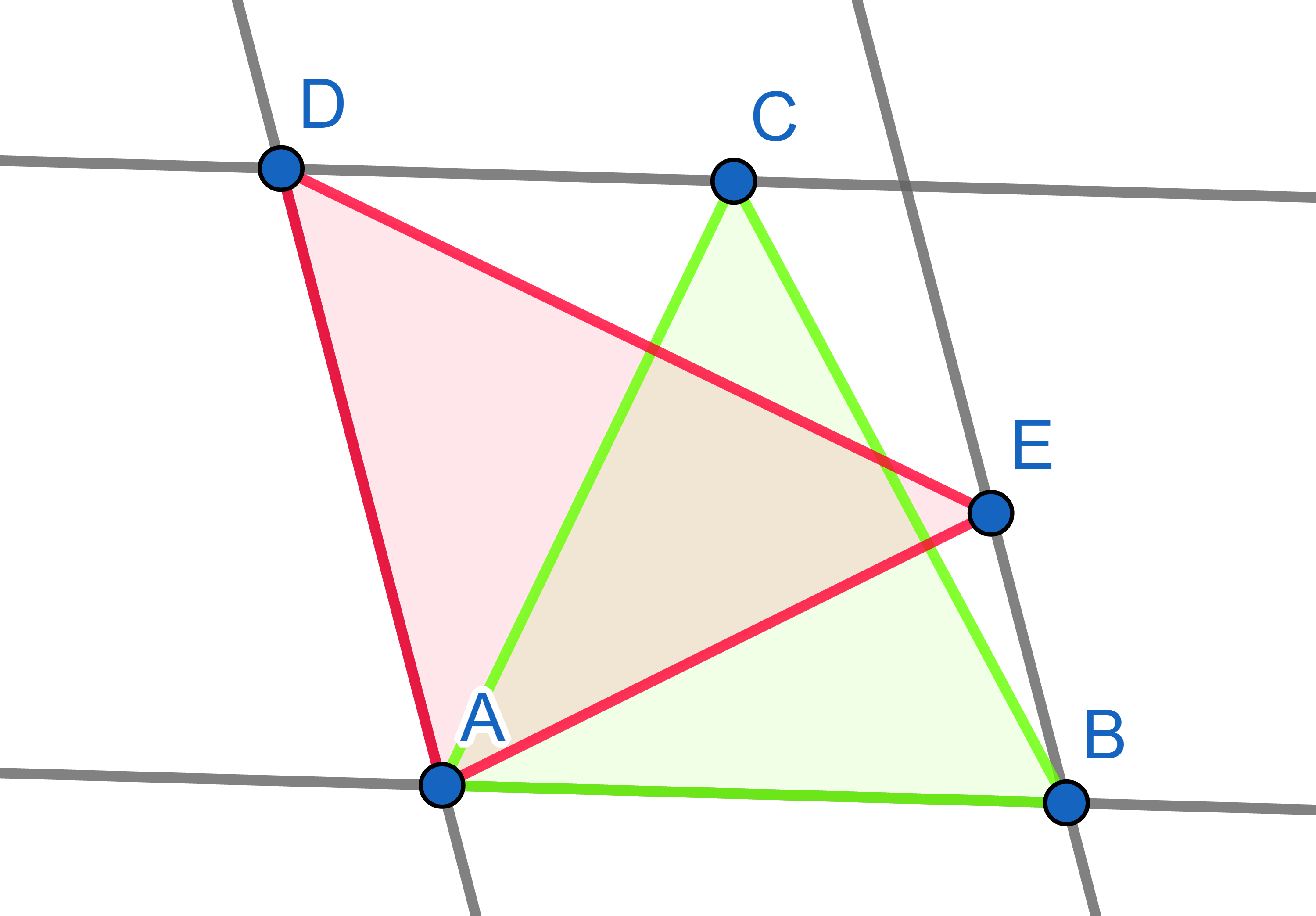
A quadrilateral \(ABCD\) is given. Points \(K\) and \(L\) belong to the side \(AB\) and \(AK=KL=LB\) and points \(N\) and \(M\) belong to the side \(CD\) and \(CM=MN=ND\). Show that the area of the quadrilateral \(KLMN\) is \(\frac13\) of the area of the quadrilateral \(ABCD\).

A quadrilateral \(ABCD\) is given. Point \(M\) is a midpoint of \(AB\) and point \(N\) is a midpoint of \(CD\). Point \(P\) is where segments \(AN\) and \(DM\) meet, point \(Q\) is where segments \(MC\) and \(NB\) meet. Show that the sum of the areas of triangles \(APD\) and \(BCQ\) is equal to the area of the quadrilateral \(MQNP\).

The marked angles are all \(45^{\circ}\). Show that the total green and blue areas are the same.

Each of the small squares has an area of \(1\). What is the area of the triangle?
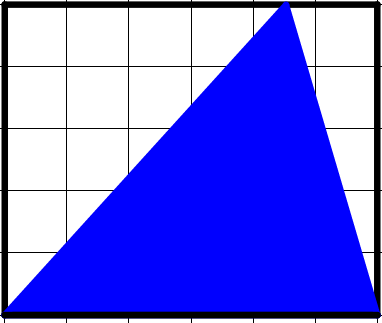
Each number denotes the area of the rectangle it is written into. What number should be written where the “?" character is?
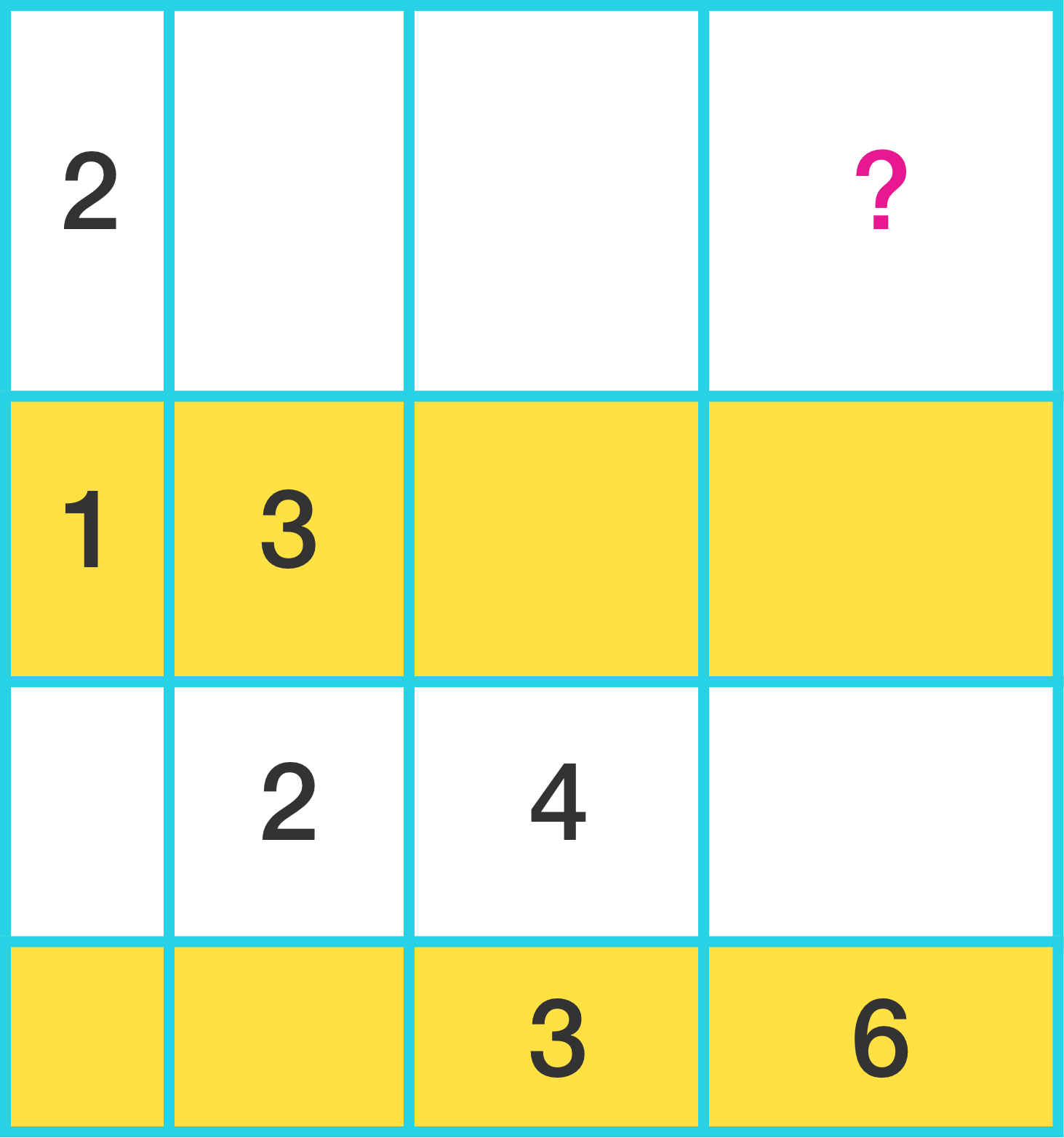
Each number denotes the area of the rectangle it is written into. What number should be written where the "?" character is?
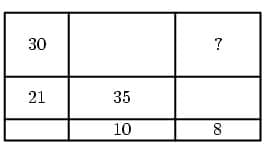
A square was cut with two parallel lines. The perpendicular distance between these two lines is \(6\)cm. One of them goes through the top right corner and the other through the bottom left corner. The three regions obtained this way, two triangles and a parallelogram, have equal areas. What is the area of the square?
